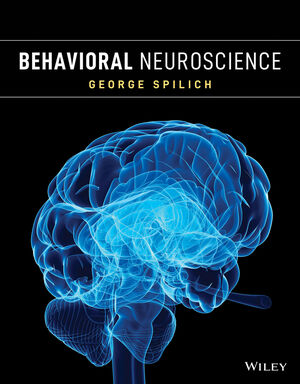Behavioral Neuroscience: Definition, Methods, and Key Concepts
Definition and Overview
Behavioral neuroscience, also known as biological psychology or biopsychology, is a multidisciplinary field that studies the biological mechanisms underlying human and animal behavior. By examining the intricate relationships between biological mechanisms and environmental factors, behavioral neuroscientists aim to unravel the mysteries of behavior, from simple nervous system responses to complex cognitive processes.
This field draws upon concepts and methods from biology, psychology, neuroscience, genetics, and other disciplines to investigate the neural substrates of behavior, including physiological processes and cognitive functions. A classic example in this field is the study of addiction, which showcases research techniques such as neuroanatomy and neuropharmacology to understand the neural mechanisms behind compulsive drug-seeking behavior.
Significant advancements in behavioral neuroscience have also led to breakthroughs in understanding neurological and psychiatric disorders like depression and anxiety. Techniques such as functional magnetic resonance imaging (fMRI) allow researchers to visualize brain function and structure, contributing to the development of novel therapeutic strategies.

Expanded Overview and Historical Context
Emerging as a distinct field in the early 20th century, behavioral neuroscience revolutionized our understanding of the neural bases of behavior. Pioneers in the field, such as William James and Karl Lashley, have influenced research that combines psychology and neuroscience, unveiling the neural mechanisms underlying behavior.
The modern era has seen vast advancements, including the advent of neuroimaging and optogenetics, allowing scientists to investigate brain activity with unprecedented precision, impacting everything from clinical psychology to education.
Key Concepts in Behavioral Neuroscience
Among key concepts are neural plasticity, the process by which the brain reorganizes itself in response to experience; neurotransmission, the communication between neurons; and neural circuits, which are complex networks that process information.
Practical Applications and Case Studies
Behavioral neuroscience has practical implications in various fields, including neuropsychological rehabilitation, educational strategies, and consumer behavior analysis. A notable case is the use of cognitive-behavioral therapy (CBT) for treating anxiety disorders, a blend of behavioral training and cognitive restructuring that has shown effectiveness in improving quality of life.
For those managing anxiety or ADHD, tools available via GoblinX can aid significantly. Users can leverage these tools to enhance coping strategies, based on behavioral neuroscience principles, providing a supportive environment to manage these challenges.
Career Paths and Educational Opportunities
Numerous educational paths exist in behavioral neuroscience, from undergraduate to doctoral studies. With applications across research and clinical practice, individuals can pursue careers as licensed psychologists, researchers, or in industry roles focusing on consumer behavior and product development.
For further exploration, you can visit the GoblinX website, which offers resources and tools designed to support individuals with ADHD and anxiety.
Important Sources
| Behavioral Neuroscience - American Psychological Association | Peer-reviewed journal on the neural bases of behavior. |
| Behavioral Neuroscience - Western Washington University | Explores the role of the nervous system in behavior. |
| Behavioral neuroscience - Wikipedia | Interdisciplinary field focused on behavior's biological mechanisms. |
| Behavioral Neuroscience - ScienceDirect Topics | Overview of neurobiology of behavior and animal models. |
| Frontiers in Behavioral Neuroscience | Research in all species advancing understanding of behavioral outcomes. |
| BS Behavioral Neuroscience - University of Virginia | Overview of the opportunities and applications in behavioral neuroscience. |